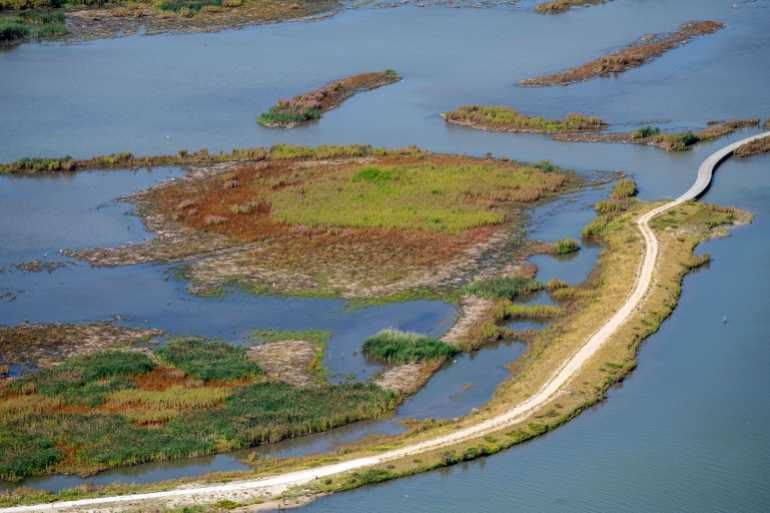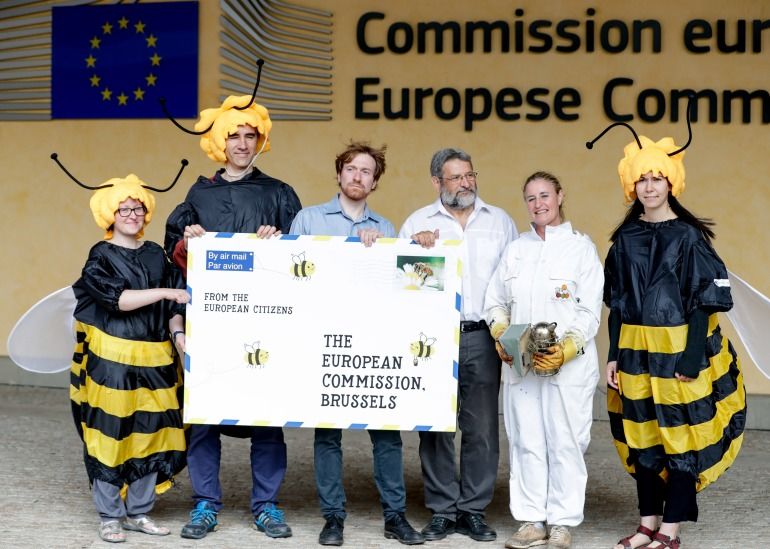
Proposed EU legislation feared to pose threat to biodiversity
The European Union’s forthcoming environmental legislation is threatening to transfer environmental regulations to financial markets, critics warn.
The proposal is framed as protecting the EU’s biodiversity with legally binding nature restoration targets.
As the EU’s entire biodiversity strategy is based on a net gain principle – offsetting – critics of the proposal say it is a thinly veiled attempt to bolster the biodiversity offsetting the EU has been trying to push for the past decade.
“They’re transferring environmental regulations to market-based solutions,” said Frederic Hache, co-founder of Green Finance Observatory, an NGO examining sustainable finance at the heart of Brussels.
The biodiversity offset market uses the same principles as its better-known carbon credit market cousin to justify environmental destruction by putting a price on natural resources and claiming substitutability – one ecosystem of the same financial value can be substituted for another.
 The Marker Wadden in IJsselmeer lake in The Netherlands is part of one
of the largest nature restoration projects in Europe, intended to
restore biodiversity
The Marker Wadden in IJsselmeer lake in The Netherlands is part of one
of the largest nature restoration projects in Europe, intended to
restore biodiversity
Proponents of such models say it will incentivise and mandate the private sector to take responsibility for nature protection, but civil society groups warn such financialisation poses a grave threat to biodiversity by reducing complex ecosystems and the species which depend on them to a monetary value.
These groups say putting a price on biodiversity, and creating an offset market, facilitates and justifies environmental destruction, not protection.
Offsetting models
There are multiple offsetting models, with the best being “like for like”: if a private company wants to destroy a natural habitat for flamingos to build an airport, for example, they have to recreate that habitat elsewhere. But that is not the framework the EU pushed for.
The preferred model is “like for like or better” meaning the destruction of a natural habitat can be compensated by creating an ecosystem service of equivalent monetary value elsewhere.
Essentially, you can kill the flamingos in Spain if you are saving bats in Greece. This model creates a market: If the compensation is no longer specific you can restore in advance and build a coffer of biodiversity credits.
Worryingly, the European Commission pushed for the “like for like or better” model.
Concerned MEPs at the European Union wrote to the commission asking for clarification as to the whether the EU’s “nature-based solutions”, the term rolled out in all recent environmental legislation, included biodiversity offsetting.
The commission confirmed the “like for like or better” biodiversity offsetting is indeed part of its nature-based solutions framework, within the geography of the EU.
 People in bee costumes launch a campaign to stop the collapse of nature
and to save rural livelihoods in the EU by phasing out pesticides
People in bee costumes launch a campaign to stop the collapse of nature
and to save rural livelihoods in the EU by phasing out pesticides
However, when asked for comment, the commission denied this.
“There is no EU biodiversity offset framework and there is no intention for the nature restoration law to benefit any biodiversity offset market,” said Stefan Leiner, the head of European Commission’s unit of Natural Capital and Ecosystem Health (ENV.D2).
“Its intention is rather to contribute to the continuous, long-term and sustained recovery of biodiverse and resilient nature across the union’s land and sea areas through the restoration of ecosystems and hereby also to contribute to achieving the union’s climate change mitigation and adaptation objectives and to contribute to meeting the union’s international commitments,” he said.
Years of prep work
Green Finance Observatory claims the EU has been working on its biodiversity offset market for 10 years, establishing frameworks and models for how to put a price on complex ecosystems.
It is not yet clear if companies themselves will be allowed to establish those prices using those models, or if the EU will involve third-party regulatory bodies.
The unregulated nature of the carbon market has created a fleet of “carbon cowboys”, the colloquial term for opportunistic financiers exploiting the lack of regulations to line their pockets with billions of dollars.
But the biodiversity market has largely gone under the radar because of the lack of legislation mandating offsetting – until now.
Hache claims these forthcoming mandatory restoration targets combined with net gain objectives would create demand for biodiversity offsetting.
“The devil is in the details and we look forward to reading the proposal. To be clear, restoration is a good thing but only if it comes in addition to curbing destruction and is neither financed by market schemes nor considered an offset,” he said.
Natural capital
At the root of offset markets and nature-based solutions is the concept of natural capital – understanding nature as a series of services which benefit human wellbeing.
By this definition, biodiversity which does not improve human wellbeing is discounted. The EU recently valued the natural capital of its ecosystems services at 234 billion euros ($365bn).
“Does the fact that we know this figure incentivise us to protect nature? Or, on the contrary, will it facilitate its destruction, if we consider that it represents about one month’s revenue of the oil and gas industry?” said Hache.
“This natural capital approach is only the first type. Once you have established that, then the idea is to establish markets based on biodiversity destruction-financial markets on the alleged compensation of biodiversity destruction.”
While environmental regulations have a long history of effectively mitigating environmental destruction – the ban of chlorofluorocarbon (CFC) gases linked to the Montreal protocol, bans on asbestos – the underlying assumption peddled in offset markets is that these regulations have failed.
Lacking evidence
Yet, proof on the success of offset markets is hard to find, with recent evidence pointing to human rights abuses and land grabbing from Indigenous populations in order to put forests on the carbon market.
Hache and his colleagues are concerned the biodiversity offset market could reproduce these same abuses.
Their concerns are not unfounded when considering there are currently more offset commitments than there is land to satisfy those commitments.
Despite warnings from academics and experts, governments and institutions are increasingly promoting market-based solutions and net gain principles to successfully navigate the ecological and climate crisis.
“It’s bizarre to imagine that the loss of biodiversity in one sphere can be offset by increasing it elsewhere,” Steve Keen, an Australian economist, told Al Jazeera.
“The problem is that ‘there is no it’: biodiversity is a simple word for the highly interconnected web of life. We barely understand that web, so to think that we can let the market poke a hole in it somewhere, and then compensate by making the web denser somewhere else, is just delusional,” he said.










